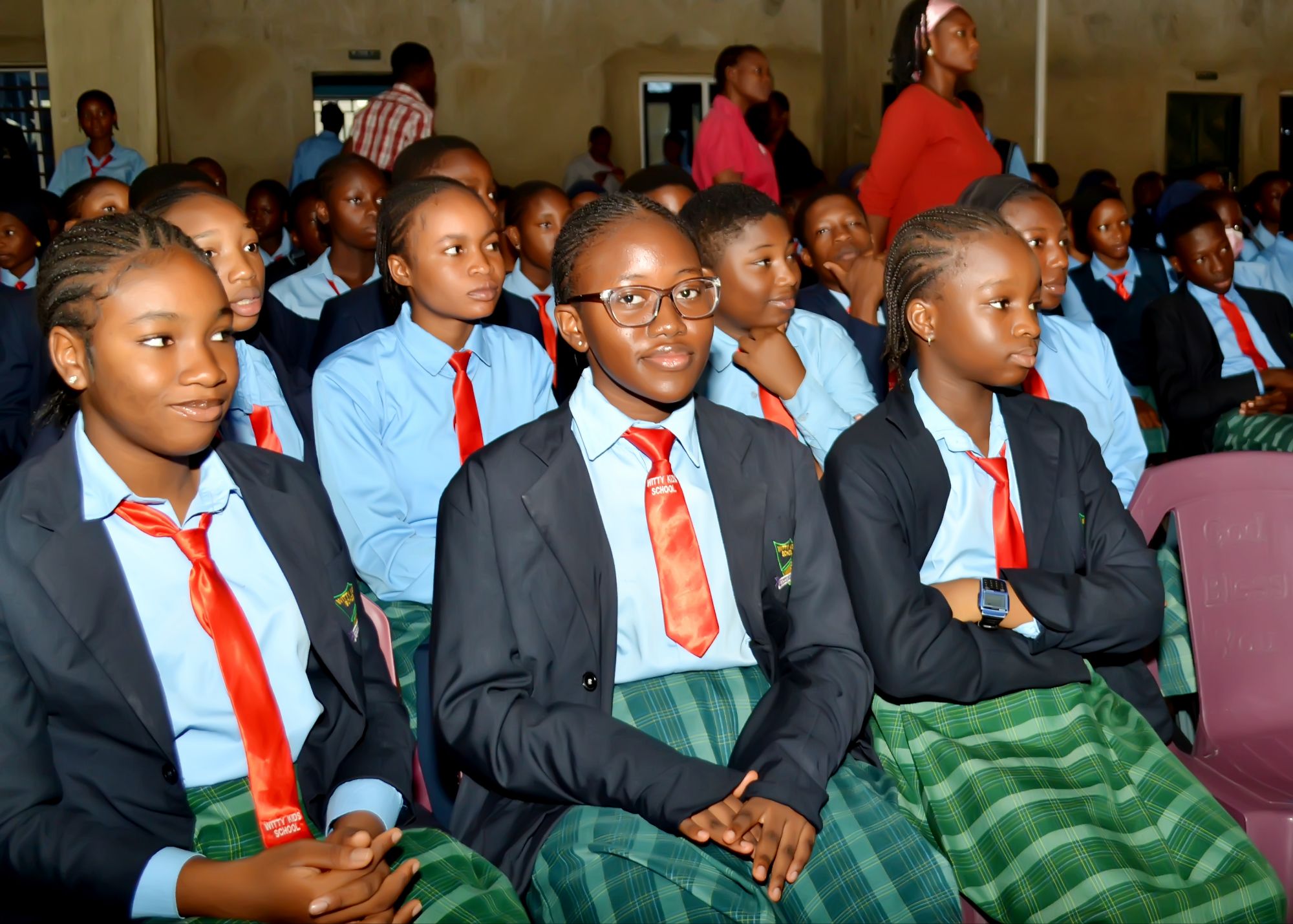Artificial Intelligence AI is no longer a futuristic concept confined to science fiction movies. It is here, now, and rapidly shaping our world. For teenagers in Nigeria, this technological revolution brings both exciting opportunities and significant challenges. Let’s explore how AI is influencing different aspects of their lives.
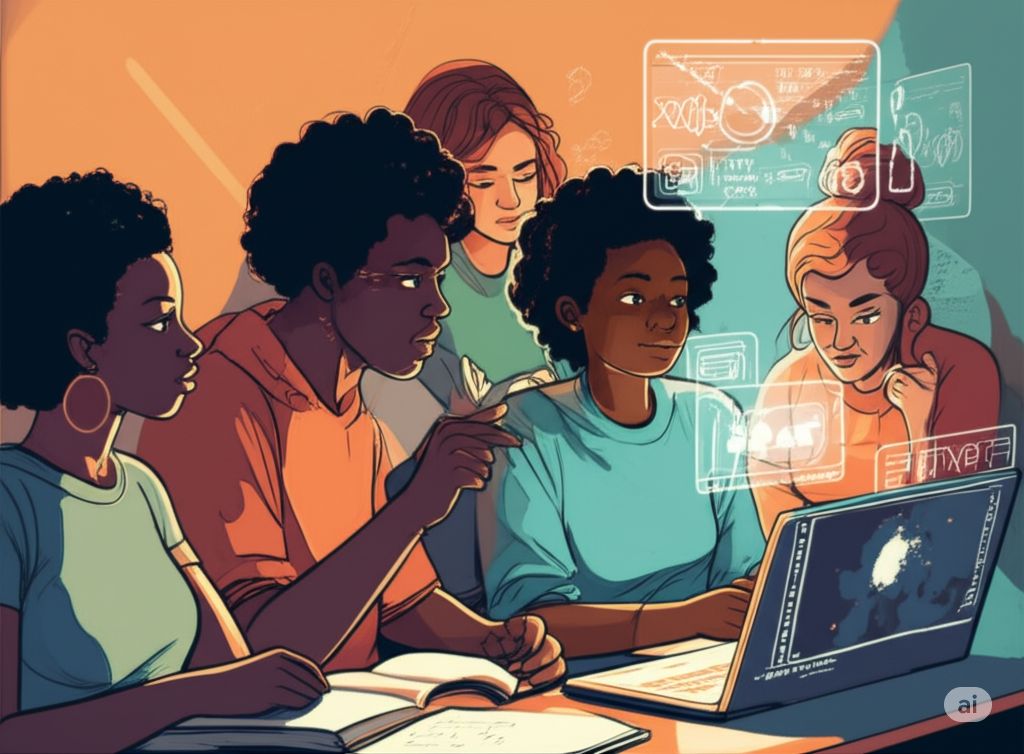
1. Their Performance in School
AI tools are transforming the learning landscape for Nigerian teenagers. Educational platforms powered by AI can offer personalized learning experiences, tailoring content to individual student needs and learning paces. This can help students grasp complex concepts more easily, improve their understanding of course material, and enhance their speaking and analytical skills. AI tutors can provide immediate feedback and adapt to different learning styles, which can
be particularly beneficial in a system where individual attention from teachers might be limited due to large class sizes.
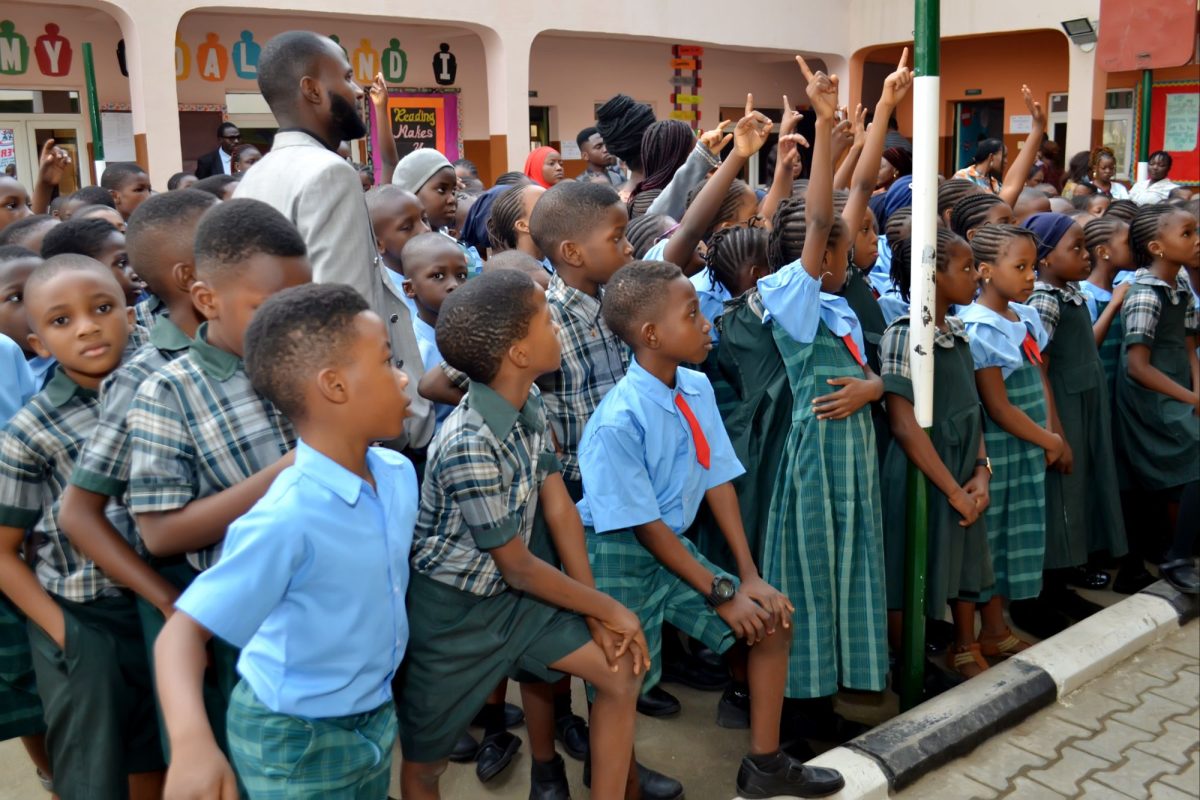
However, there is also the concern of over-reliance on AI for assignments, which could hinder the development of critical thinking and independent
problem-solving abilities if not managed carefully. The ethical implications of using AI for academic work, such as potential issues with plagiarism or examination malpractice, also need to be addressed by schools and educators.
2. Their Performance in Exams
The impact of AI on exam performance is a double-edged sword. On one hand, AI-powered study tools can help teenagers prepare more effectively by identifying their weak areas and providing targeted practice questions. They can simulate exam conditions, allowing students to familiarize themselves with question formats and time management.
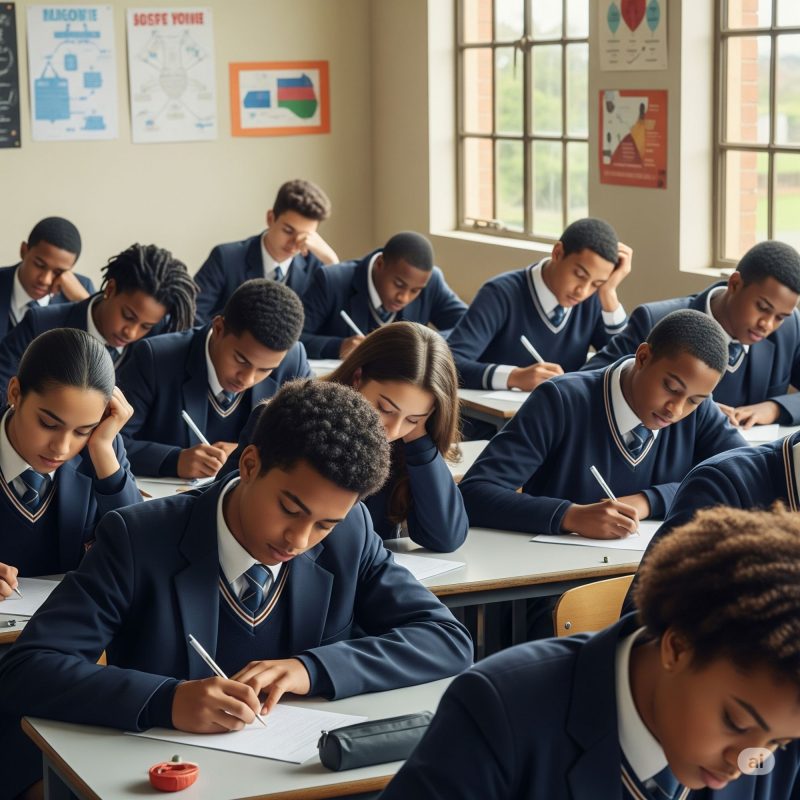
This can lead to improved scores and greater confidence. On the other hand, the temptation to use AI for direct answers during exams presents a significant challenge to academic integrity. As AI becomes more sophisticated, detecting such usage becomes increasingly difficult, requiring educational institutions to adapt their assessment methods and focus more on higher-order thinking skills that AI cannot easily replicate.
3. Their Connection with Society
Artificial intelligence (AI) is profoundly influencing how Nigerian teenagers connect with the world around them. Social media platforms, largely driven by AI algorithms, curate their news feeds, entertainment, and social interactions.
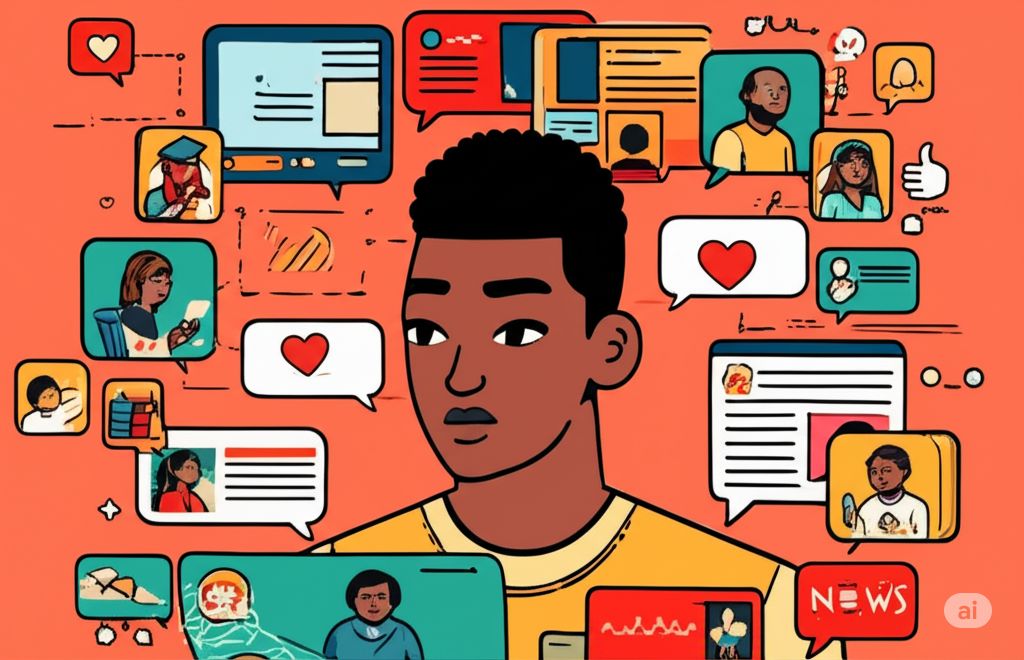
This can broaden their horizons, expose them to diverse perspectives, and facilitate connections with peers globally. It also allows for greater participation in online communities and movements.
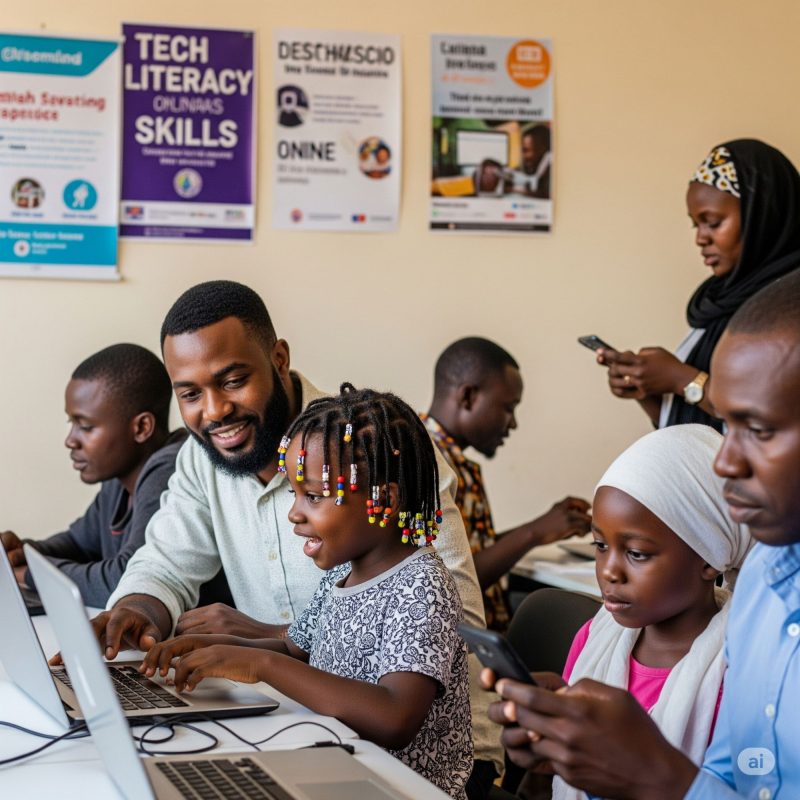
However, this same connectivity can lead to challenges such as the spread of misinformation, cyberbullying, and the development of filter bubbles where
teenagers are primarily exposed to content that reinforces their existing beliefs. There is also the risk of increased screen time leading to reduced face-to-face interactions and potentially impacting social development and mental well-being.
4. Their Future and Jobs
The future job market for Nigerian teenagers will be significantly shaped by AI. While some routine and repetitive tasks may be automated, AI is also creating entirely new roles and industries. Jobs requiring uniquely human skills such as creativity, critical thinking, emotional intelligence, and complex problem solving will be in high demand.

Teenagers who acquire digital literacy and AI skills will have a significant advantage. This includes understanding how AI works, how to use AI tools effectively, and how to collaborate with AI. The ability to adapt to new technologies and continuously learn will be crucial for navigating a rapidly evolving job landscape.
5. Mental Health and Well-being
The pervasive presence of AI in digital platforms and daily life also has implications for the mental health of Nigerian teenagers. Constant exposure to curated online content can lead to unrealistic comparisons, body image issues, and feelings of inadequacy. The addictive nature of some AI-driven applications can contribute to excessive screen time, sleep disruption, and anxiety. Conversely, AI also presents opportunities for mental health support.

AI-powered chatbots and online therapy tools can provide accessible and discreet support for teenagers struggling with mental health challenges, particularly in a context where professional help may be limited. However, the ethical considerations of data privacy and the limitations of AI in truly understanding human emotions must be carefully considered.
6. Digital Literacy and Responsible AI Usage
With AI becoming an integral part of life, digital literacy goes beyond just knowing how to use a computer. For Nigerian teenagers, it means understanding how AI systems operate, recognizing biases in algorithms, and critically evaluating information generated by AI.

It involves developing responsible digital citizenship skills, including protecting their privacy online and understanding the ethical implications of AI technologies. Equipping teenagers with these skills is crucial to empower them to be creators and innovators in the digital age, rather than merely passive consumers of technology. Initiatives to integrate AI education into school curricula and provide practical training are essential to bridge the existing digital literacy gap.
7. Creative Expression and Innovation
AI is opening up new avenues for creative expression and innovation for Nigerian youth. Generative AI tools can assist in writing stories, composing music, designing graphics, and even developing games. This allows teenagers to experiment with ideas, bring their visions to life more quickly, and explore artistic possibilities that were previously inaccessible.
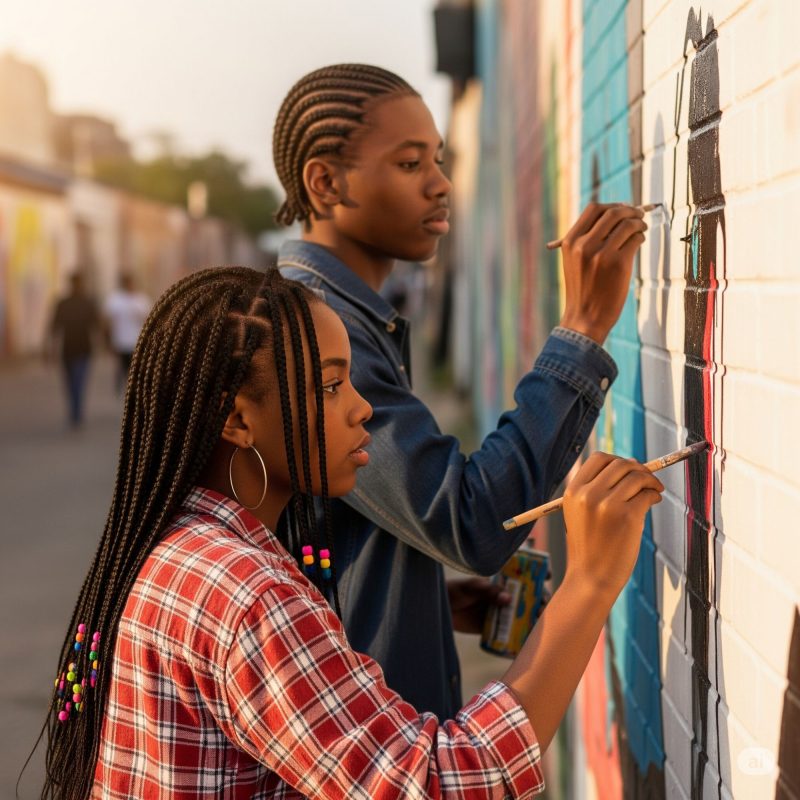
AI can serve as a powerful brainstorming partner or a tool to automate tedious aspects of creative work, freeing up time for more conceptual and imaginative pursuits. However, it is important to emphasize that AI is a tool to augment human creativity, not replace it. The unique cultural context and
The storytelling traditions of Nigeria can be further amplified by using AI as an enabler for local content creation and artistic endeavors.
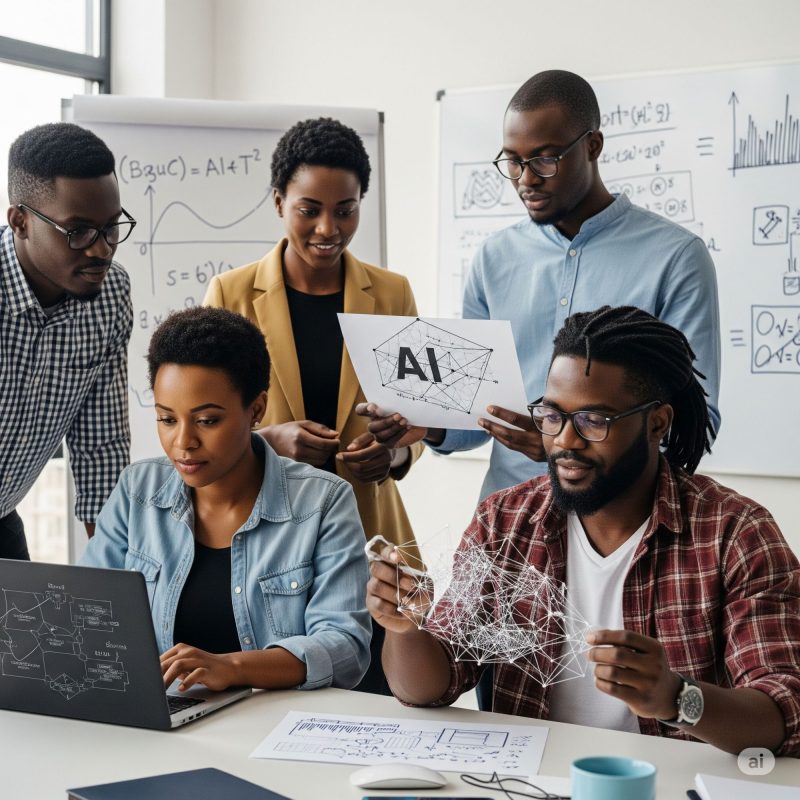
In conclusion, Artificial Intelligence is undeniably shaping the lives of Nigerian teenagers in profound ways. While it presents remarkable opportunities for enhanced education, career prospects, and creative expression, it also comes with responsibilities related to digital literacy, mental well-being, and ethical considerations. By embracing a balanced approach that focuses on equipping teenagers with the necessary skills and fostering responsible AI usage, Nigeria can empower its youth to thrive in this exciting new era.

